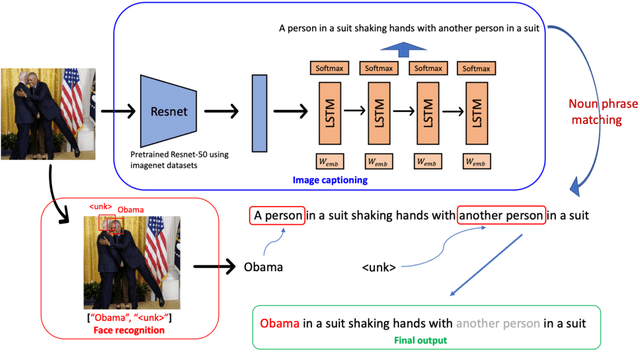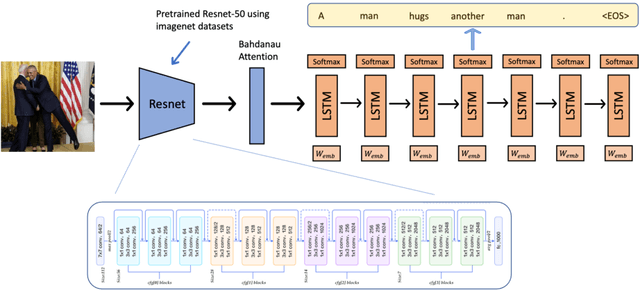Jize Xiong
Image Captioning in news report scenario
Apr 02, 2024



Abstract:Image captioning strives to generate pertinent captions for specified images, situating itself at the crossroads of Computer Vision (CV) and Natural Language Processing (NLP). This endeavor is of paramount importance with far-reaching applications in recommendation systems, news outlets, social media, and beyond. Particularly within the realm of news reporting, captions are expected to encompass detailed information, such as the identities of celebrities captured in the images. However, much of the existing body of work primarily centers around understanding scenes and actions. In this paper, we explore the realm of image captioning specifically tailored for celebrity photographs, illustrating its broad potential for enhancing news industry practices. This exploration aims to augment automated news content generation, thereby facilitating a more nuanced dissemination of information. Our endeavor shows a broader horizon, enriching the narrative in news reporting through a more intuitive image captioning framework.
Accelerating Semi-Asynchronous Federated Learning
Feb 22, 2024
Abstract:Federated Learning (FL) is a distributed machine learning paradigm that allows clients to train models on their data while preserving their privacy. FL algorithms, such as Federated Averaging (FedAvg) and its variants, have been shown to converge well in many scenarios. However, these methods require clients to upload their local updates to the server in a synchronous manner, which can be slow and unreliable in realistic FL settings. To address this issue, researchers have developed asynchronous FL methods that allow clients to continue training on their local data using a stale global model. However, most of these methods simply aggregate all of the received updates without considering their relative contributions, which can slow down convergence. In this paper, we propose a contribution-aware asynchronous FL method that takes into account the staleness and statistical heterogeneity of the received updates. Our method dynamically adjusts the contribution of each update based on these factors, which can speed up convergence compared to existing methods.
 Add to Chrome
Add to Chrome Add to Firefox
Add to Firefox Add to Edge
Add to Edge